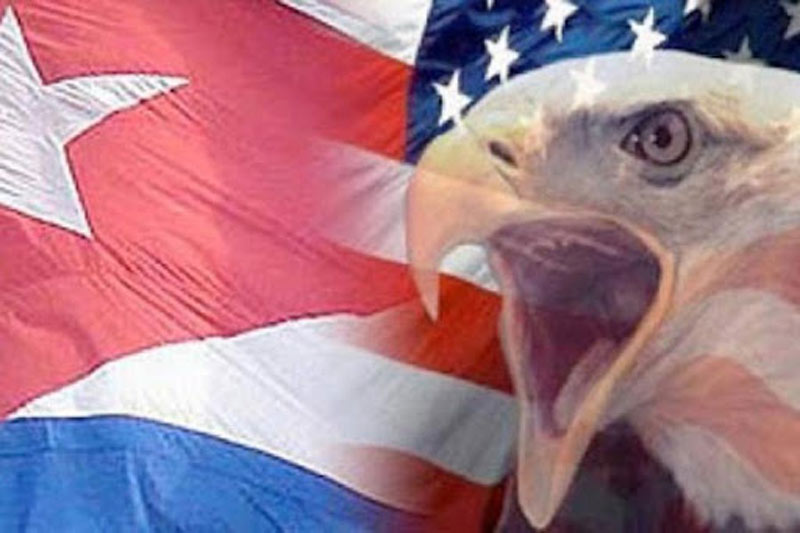The statement is contained in an opinion article published on Tuesday by William LeoGrande, dean emeritus of the School of Public Affairs at the American University in Washington, D.C., in which he emphasizes that much of this absurdity “is based on false premises and distorted facts.”
These congress people “get away with it because no issue is more important to them than Cuba, and Cuba is not important enough to (President Joe) Biden to confront them, the author warned in the article, which was published in the online magazine Responsible Statecraft, from the Quincy Institute.
“The rationales offered by the policy’s defenders make no sense, and when they try to explain, they sound like characters in an Ionesco play. Recent legislative proposals from Cuban American members of the House of Representatives are prime examples, the academic added.
Rep. Mario Díaz-Balart (R-Fla.), chair of the Appropriations Subcommittee on Foreign Operations, and Rep. María Elvira Salazar (R-Fla.), chair of the House Foreign Affairs Subcommittee on the Western Hemisphere, recently proposed new sanctions against Cuba, he noted.
Their proposals block in “Cuba’s groundless designation as a sponsor of international terrorism, block assistance to Cuba’s private sector on the grounds that it doesn’t exist, and punish countries hosting Cuban medical missions for practicing “modern slavery.”
The last two proposals became law in the omnibus appropriations bill passed last month to avoid a government shutdown, LeoGrande recalled.
He added, “Cuba is on the State Department’s terrorism list, even though the Department’s latest Country Report on Terrorism offers no evidence for Havana engaging in international terrorism.”
He noted that in order to justify that arbitrary designation, it cites Cuba’s harboring of US fugitives who committed politically-motivated crimes in the United States more than 40 years ago.
However, “the United States for years harbored notorious Cuban exiles like Orlando Bosch and Luis Posada Carriles, guilty of myriad terrorist attacks against Cuba.” Among these violent actions, LeoGrande mentioned the mid-flight explosion of a Cuban airline plane, where the 73 people traveling on board lost their lives, and also the bombs placed in the 1990s in tourist hotels in Havana.
At the beginning of the Biden administration, the White House said that it was it was “committed to carefully reviewing Cuba’s designation,” but later Antony Blinken himself told Congress, “We are not planning to remove them from the list,” the article pointed out.
When asked at a 2023 press conference why Cuba was still on the terrorism list, a State Department spokesperson responded that it was due to Cuba’s “long track record of egregious human rights abuses, suppression of a free press, suppression of civil society.”
The response was absurd because that has nothing to do with international terrorism.
The official also acknowledged, oblivious to the irony, that the US and Cuban governments engage in regular counter-terrorism cooperation talks under the auspices of a law enforcement agreement concluded during the Obama administration. (2009-2017).
Last year, Díaz-Balart joined Salazar to sponsor a bill preventing the Biden administration from removing Cuba from the terrorism list until “it becomes a multi-party democracy.”
Although the bill is unlikely to become law this Congress, it demonstrates its disregard for the statutory criteria for designating a country as a sponsor of terrorism.
Another provision of the omnibus appropriation would punish countries that pay Cuba for providing medical services on the grounds that such contracts constitute “modern slavery.” Since the 1960s, Cuba has sent some 400,000 medical professionals to serve in 164 countries.
Washington once again arrogates to itself the right to sanction other countries for their relations with Cuba, as if neither its sovereignty nor that of Cuba counted for anything, the author noted.
“It’s that a small group of conservative Cuban American legislators, obsessed with reducing Cuba to penury, have been able to dictate policies that damage broader US interests in Latin America, Europe, and the Global South,” LeoGrande concluded.
jg/ro/dfm









